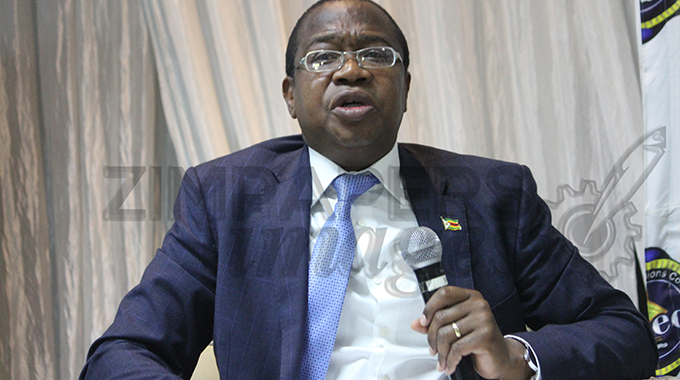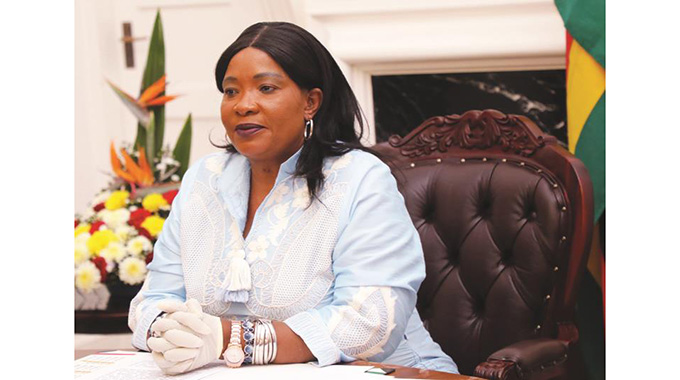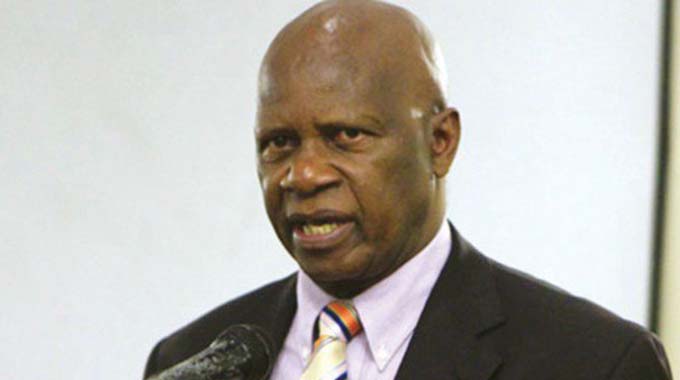We can emerge from Covid-19 stronger: Ncube

Africa Moyo
Deputy News Editor
Zimbabwe and the rest of Sadc will emerge from the Covid-19 pandemic stronger, taking advantage of solid infrastructure investments made in healthcare, support for local manufacturing and new social safety nets, Finance and Economic Development Minister Professor Mthuli Ncube said yesterday.
In his address during the 26th Meeting of the Intergovernmental Committee of Senior Officials and Experts of Southern Africa, which was held virtually in view of Covid-19 restrictions, Prof Ncube stressed the investment in the basics and the move from imports to more local production made during the pandemic.
Most Sadc countries had invested extensively in education, healthcare, social safety nets and productive sectors to overcome the challenges posed by Covid-19 restrictions and shortages, and that investment gave a solid base for future expansion.
But while the Covid-19 pandemic was a calamity and had severely damaged economies all around the world, if the right steps were taken, “we can grow out of this crisis stronger than we entered it”.
“Firstly, let us preserve the enormously improved healthcare systems that have resulted from swift government action and bold investments all around Africa,” said Prof Ncube.
“In Zimbabwe alone, we hired 4 700 new healthcare workers, purchased world-class equipment, and upgraded healthcare facilities all around the country.
“There can be no doubt that these investments in the health and safety of our people are worth preserving, and will not only increase our preparedness in the event of any future pandemic, but also be instrumental in the long-term development of our society.”
While Covid-19 has imposed costly disruptions to international trade and supply chains, Sadc states needed to grab that as an opportunity to reduce their dependence on imported resources, and to boost domestic and regional value chains and hence the capacity to produce goods that were traditionally imported.
Zimbabwe took the bold decision to support its through an $18 billion stimulus package to boost production capacity to ensure availability of goods, and consequently reduce the import bill.
Further, stimulus packages were set up for the tourism, sport and arts sectors, to ensure members are not negatively affected by the effects of the pandemic.
Going forward, Zimbabwe and the rest of Sadc should not hesitate to take “further steps to put our productive sectors in a position to compete with international players”.
The disruptions suffered from the Covid-19 crisis once more underlined the critical importance of being able to provide for the basic nutritional needs without imports.
“In Zimbabwe, we allocated large amounts of emergency support to the agricultural sector, and will take further measures – including measures to confirm property rights and encourage long-term investments into agriculture – to promote nutritional self-sufficiency.
“Lastly, this crisis has forced many countries to swiftly expand social safety nets in order to protect vulnerable parts of the population from the worst outfalls of this pandemic.
“Again, let us capitalise on this achievement, and ensure that the progress made on this front is employed towards a better and more sustainable system of social support, so as to ensure that no one is left behind on the path to future prosperity.”
Many contributors praised Zimbabwe for its interventions and sought to understand more on how it had gone about it, especially identifying and providing food and cash transfers to the needy.
In an interview after his presentation, Prof Ncube said the meeting was critical in helping Sadc member states appreciate how others were tackling the challenges brought by Covid-19.
There was interest from other countries to further engage Zimbabwe on some of the measures it took to mitigate the impact of Covid-19 on the economy.
The two-day meeting is being organised by the Economic Commission for Africa (ECA) Office for Southern Africa, and ends today.
The meeting runs under the theme; “Policies and strategic effective private sector led growth and job creation”.
Focus will be on strategies and policies towards supporting the private sector as drivers of development, job creation, and growth in the region.
It brings together senior government officials and experts in regional integration and trade in services and private sector development from Sadc member States, representatives of the Sadc and Common Market for Eastern and Southern Africa Secretariats, representatives from the African Union Southern Africa Regional Office, academic and research institutions, civil society, professional organisations, financial institutions, and the UN family, among others.










Comments